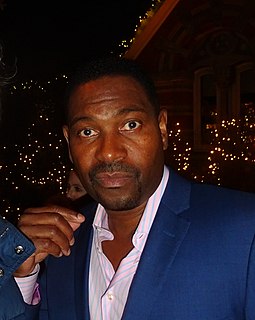A Quote by Jane Poynter
Shrimp farms are a scourge on the earth, frankly, from an environmental point of view. They pour huge amounts of pollutants into the ocean. They also pollute their next-door neighbors.
Related Quotes
Anyway, like I was saying, shrimp is the fruit of the sea. You can barbecue it, boil it, broil it, bake it, sautes it. There's, um, shrimp ka-bobs, shrimp creole, shrimp gumbo, pan-fried, deep-fried, stir-fried. There's pineapple shrimp, lemon shrimp, coconut shrimp, pepper shrimp, shrimp soup, shrimp stew, shrimp salad, shrimp and potatoes, shrimp burger, shrimp sandwich... That's, that's about it.
But every point of view is a point of blindness: it incapacitates us for every other point of view. From a certain point of view, the room in which I write has no door. I turn around. Now I see the door, but the room has no window. I look up. From this point of view, the room has no floor. I look down; it has no ceiling. By avoiding particular points of view we are able to have an intuition of the whole. The ideal for a Christian is to become holy, a word which derives from “whole.
Air is one we hold in common; it has a limited carrying capacity for pollutants and that's being used up by those who pollute the atmosphere. So we have to stop that externality. We would never allow a utility to put their coal slag in a dump truck and back it up to the city park and dump it in unlimited amounts for free. But that is exactly what we do with carbon dioxide and methane.
[T]he more clamour we make about 'the women's point of view', the more we rub it into people that the women's point of view is different, and frankly I do not think it is -- at least in my job. The line I always want to take is, that there is the 'point of view' of the reasonably enlightened human brain, and that this is the aspect of the matter which I am best fitted to uphold.
Nature is out there, and we can do what we like to it. We can cut down the rain forest. We can put animals in factory farms and slaughter them as we like. We can over-fish the oceans. We can pollute the rivers. We can pollute the water and change climate. We are somehow superior to nature. We are somehow rulers of nature.
I've been pretty lucky with neighbors. But back in 1998, I lived, like, literally next door to Wrigley Field in Chicago. And I had, like, 50,000 bad neighbors spread out over the course of one summer. I'm a diehard Cubs fan, but living right next to the ballpark, it's just - as you're trying to go to sleep, you can just, like, hear urination.
Perhaps one of the most meaningful ways to sense the impact of the environmental crisis is to confront the question which is always asked about Lake Erie: how can we restore it? I believe the only valid answer is that no one knows. For it should be clear that even if overnight all of the pollutants now pouring into Lake Erie were stopped, there would still remain the problem of the accumulated mass of pollutants in the lake bottom.



































